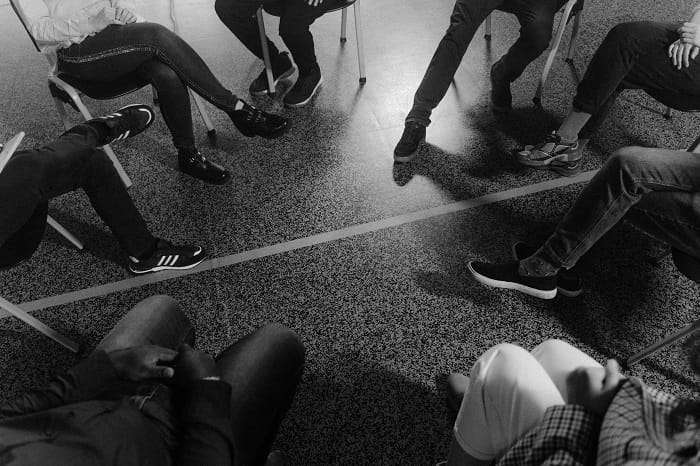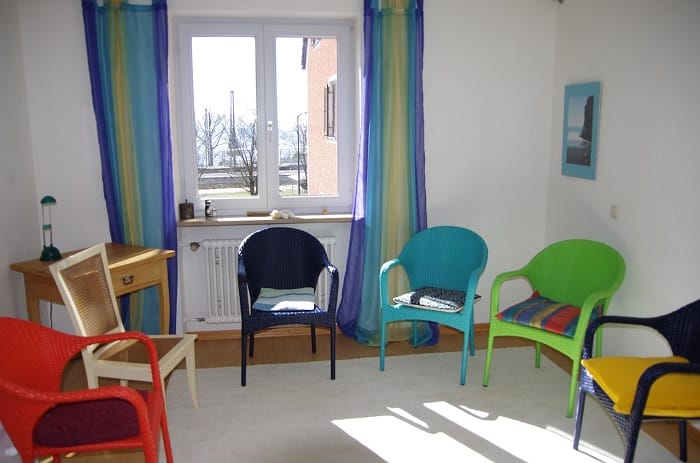Are you or a loved one seeking drug or alcohol rehab in Northampton?
Fortunately, Northampton is not without its fair share of drug and alcohol rehab treatment centres. In fact, Northampton is home to some of the United Kingdom’s best addiction treatment centres.
Depending on the nature of your addiction, you will receive a detox followed by a highly structured regime of therapy and counselling sessions at drug and alcohol rehab in Northampton.
This helps you build a solid mental foundation that is required to enable a successful lifelong recovery process, even after rehab.
Modern drug and alcohol rehabs in Northampton and near Northampton offer evidence-based treatments, with medicated detoxes following NICE Guidelines. [1]
These treatments at rehab include a wide range of talking therapies, psychotherapies, holistic therapies and other modern innovations designed to help an individual overcome every aspect of the disease of addiction.
To begin your rehab recovery journey in Northampton today, call us on 0800 140 4690

Northampton offers a myriad of professional rehab treatment programmes for drug and alcohol addiction, whether it be a physical or psychological addiction.
This varies between private rehab and NHS treatment facilitators.
The last decade has seen a dramatic decrease [2] in the amount of Government funding available to drug and alcohol addicts, and so the vast majority of rehab treatment providers are entirely private.
This means you are able to gain access to a rehab treatment programme without undue delay, but the cost associated with private treatment is prohibitive for many ordinary working people.
This is where Rehab 4 Addiction is able to help your plight. When you make contact with Rehab 4 Addiction our knowledgeable addiction counsellors and medical professionals advise you on drug or alcohol treatment available in the Northampton area.
Learn more about the many treatment options available at a drug and alcohol rehab in Northampton by calling our team on 0800 140 4690

There are many different psychiatric assessments used by psychiatrists and addiciton specialists at a rehab in Northampton to diagnose addiction, with some of the most popular being the American Society of Addiction Medicine (ASAM) criteria, [5] the Alcohol Use Disorders Identification Test (AUDIT), [6] and the CAGE Questionnaire. [7]
These tests all allow for the creation of a bespoke, person-centred care plan for each individual entering rehab, receiving physical and psychiatric treatments that were chosen to work specifically for their needs and preferences.
To learn more about categorising and measuring addiction in Northampton, call Rehab 4 Addiction on 0800 140 4690

Often perpetuated by the media, it’s hard to ignore the harmful narratives that plague rehab centres.
Unfortunately, many consider an alcohol and drug rehab facility in Northampton to be the final resort for those who have hit the lowest point in their addiction.
That’s why here at Rehab 4 Addiction, we’re keen to assure you that the opposite is true. Addiction is a broad spectrum, and each case is worthy of inpatient care courtesy of a drug & alcohol rehab in Northampton or near Northampton.
It might be that you’re a long-term sufferer of SUD, or have only recently recognized your substance abuse addiction.
Whatever your unique situation, rehab offers a range of psychiatric support and relapse prevention workshops.
Although inpatient rehab care is suitable for anyone struggling with addiction, it’s also ideal for those who have previously received treatment.
Oftentimes, those who have relapsed after short-term abstinence benefit most from an alcohol and drug rehab clinic. A short-term residency at a rehab in Northampton or near Northampton allows these patients to address underlying issues, and strengthen their relapse prevention plan.
Additionally, a stay at a rehab in Northampton can prove life-changing for those struggling with mental illness alongside substance addiction.
As both types of illness come hand in hand, rehab centres in Northampton are well-equipped to treat psychiatric conditions.
Not sure if drug and alcohol rehab in Northampton is suitable for you? Talk it over with us on 0800 140 4690

Unfortunately, not all victims of SUD will acknowledge the need for rehab treatment right away. Some may lack motivation and view sobriety as unattainable, while others deny the very existence of their addiction.
Thankfully, our team here at Rehab 4 Addiction can put you in contact with a professional interventionist working in Northampton or near Northampton. By staging an intervention with their expertise, you’ll be able to help a loved one start their recovery programme journey.
Despite the importance of group participation, the responsibility of staging an intervention shouldn’t fall entirely on the individual’s loved ones.
It’s important to see the help of a specialist – specifically a behavioural counsellor, addiction psychiatrist, or relevant medical professionals who are familiar with rehab addiction services in Northampton.
The end goal is to present your loved ones with the opportunity to change at rehab before their addiction grows in severity.
An interventionist can suggest ways to sympathetically address destructive behaviour, and organize future rehab treatment programs in the Northampton area.
Of the many intervention models, perhaps the most progressive is the Community Reinforcement And Family Training (CRAFT) method.
After reaching out to our team, Rehab 4 Addiction can assign you a CRAFT therapist in Northampton.
Through a series of workshops, they’ll encourage the following practices to ensure effective intervention.
To learn more about conducting an intervention before drug or alcohol rehab in Northampton, call us today on 0800 140 4690

Here at Rehab 4 Addiction, we’re proud to offer expert guidance for those suffering from addiction- either directly or indirectly.
Many members of our team have been through a recovery programme themselves, giving them the knowledge to find you a suitable drug & alcohol rehab in Northampton or near Northampton.
As each case of SUD is different, we‘ll adapt the rehab admissions process to suit your individual needs.
By crafting a personalised referral, you’ll be presented with a list of recommended rehab clinics in the Northampton area.
To begin this process, we’ll organize your free phone consultation with one of our consultant psychiatrists.
They’ll use their expertise to perform a quick, non-invasive health assessment to gauge your well-being.
To design the best rehab treatment plan, they’ll inquire about your substance use history, addiction severity, and any pre-existing conditions.
In addition, you’ll be asked to describe any mental health or physical withdrawal symptoms.
Common symptoms of drug or alcohol withdrawal syndrome include:
Following the pre-admission assessment, you’ll be asked to describe your preferences for finding the optimal rehab clinic in Northampton. Whether you have a specific location, budget, or treatment in mind- we’ll take each factor into careful consideration.
Once this is complete, we’ll present your list of recommended rehab centres. If you’re based in the Northampton area, you’ll have the chance to view each clinic and make an informed decision.
By the same token, if the need for rehab treatment is urgent, we can organize a bed for you swiftly.
Begin the admissions process at a drug and alcohol rehab in Northampton today by giving us a call on 0800 140 4690

Following the Covid Pandemic, rates of hazardous drug use have increased nationally- pointing to a widespread need for treatment. GOV UK statistics revealed that in 2019, a shocking 1 in 25 adults had taken a class A drug, [8] and that this figure had only risen since Covid.
Whether you’re battling opioid, cocaine, or amphetamine addiction – a drug & alcohol rehab in Northampton can facilitate your long-term recovery.
Here at rehab, patients have 24/7 access to a variety of both holistic and medical support. This allows for a complete full recovery by addressing physical and psychological factors.
To reap the rewards of rehab in Northampton, people choose to spend between 30-120 days in a clinic.
This allows ample time for a supervised detox, the completion of a medication program, and subsequent therapy at rehab.
Accepting medication is strongly advised for the management of cravings and withdrawal symptoms. Oftentimes, victims of cocaine and opioid use disorder are prescribed Baclofen.
This drug alters the chemical processes responsible for cravings and mimics GABA to calm anxiety.
Alongside pharmacological support, rehab patients in Northampton with illicit drug addictions often benefit from a psychotherapy programme. Usually, this includes a combination of behavioural intervention and holistic therapy.
Cognitive Behavioral Therapy (CBT) sessions at rehab are frequently recommended, and help patients to link their thoughts, emotions and actions.
After a series of workshops, you’ll learn to identify and manage your triggers and learn what motivates you to use drugs.
Holistic Therapy (HT) and other alternative therapies are used in tandem with CBT for drug addiction at rehab.
Designed to treat the individual as a whole, HT stimulated emotional healing through the arts, exercise, and mindfulness.
These are just a few of the therapy styles available to addiction rehab patients in Northampton.
Don’t let addiction control your life – get help from a drug and alcohol rehab in Northampton by giving our experts a call on 0800 140 4690

Family Therapy has long been a staple of rehab treatment. Similar to Group Therapy, it allows a group of loved ones to heal collectively from the effects of addiction.
Together, family members can address their concerns and improve overall communication.
Usually held on-site at a drug & alcohol rehab in Northampton, FBT sessions are led by an experienced therapist.
They’ll work with each family member to help heal damaged relationships and make sure each individual’s needs are met.
Some rehab centres in Northampton are able to provide family therapy when necessary.
Essentially, DBT focuses on managing intense emotions and facilitating recovery through healing trauma. While classed as behavioural intervention, DBT differs from CBT as it addresses feelings rather than cognitive patterns.
At rehab in Northampton, workshops are held for those who are emotionally dependent on drugs or alcohol.
One situation in which DBT at rehab proves successful is healing from negative life events.
Unfortunately, PTSD is often a gateway into substance overuse, as people use drugs or alcohol to escape mental health symptoms.
Fortunately, through regular DBT sessions as part of their rehab treatment program, patients can learn to heal from past trauma.
By managing their emotions, patients remove the need to use and therefore increase their chances of lifelong recovery.
DBT can be provided when needed at most rehab centres in Northampton.
CBT is a well-known form of psychotherapy at rehab and has witnessed decades of success in the field of addiction treatment, both in Northampton and all over the world.
Informed by years of scientific study, it aims to tackle SUD by changing the negative thought pathways that lead to substance use.
Patients can undergo CBT in both inpatient and outpatient settings, owing to its ability to treat multiple addiction types.
Over time, rehab patients can re-wire negative thought patterns, increase self-knowledge, and treat the underlying causes of their SUD.
CBT is often at the heart of any rehab recovery program in Northampton.
Based on collaborative discussion between the therapist and rehab patient, MI and other motivational therapies aim to resolve any ambivalence towards treatment.
Instead of tackling cognitive problems, MI instead focuses on forming personal goals for a full rehab recovery with the help of an addiction counsellor.
By supporting the individual through fluctuating motivation levels, MI is most effective when used alongside behavioural intervention methods.
Most Northampton rehabs will facilitate MI or equivalent treatments, such as Motivational Enhancement Therapy (MET)
Alternative therapies are an integral and popular part of rehab, as they focus on the cultivation of healthy life in the outside world.
Particularly effective, HT takes the entire individual into account: focusing on the mind, body and spirit. In contrast to psychotherapy, HT focuses entirely on wellness.
Workshops encourage patients to re-ignite any hobbies or leisure activities they may have lost to their addiction.
To this end, they are asked to form some goals for the pursuit of a healthy lifestyle after leaving a drug & alcohol rehab in Northampton.
Based on these goals, participants will be presented with a variety of workshops. Popular options include but aren’t limited to yoga, mindfulness, art therapy, music therapy, acupuncture and nutrition workshops.
These are just some of the most common therapies experiences whilst at rehab, but many others are also widely used. These can include:
For more advice on the various therapies you may experience at a drug and alcohol rehab in Northampton, call our team today on 0800 140 4690.

Free and NHS-run [9] addiction treatment services are widespread in and around Northampton, with support coming from both NHS Foundation Trusts and independent charities.
These include:
Address: First Floor, Newland House, Northampton, NN1 3EB
Telephone: 03000 273 737
Website: https://www.nhft.nhs.uk/camhs
Address: 1-9 Barton Road, Bletchley, Milton Keynes, Buckinghamshire, MK2 3HU
Telephone: 01234 219 817
Website: https://www.turning-point.co.uk/
Address: Spring House, 39 Billing Road, Northampton, NN1 5BA
Telephone: 08081 698 512
Website: https://www.changegrowlive.org/substance-to-solution-northamptonshire/northampton
Address: 63c Gold Street, Northampton, NN1 1RA
Telephone: 01604 621 259
Website: https://www.bridge-northants.org.uk/
There are a number of remote services that could also assist in overcoming addiction, including the National Association for Children of Alcoholics, the National Institute for Health and Care Excellence (NICE), Change Grow Live, We Are With You and Turning Point.
The NHS also be able to assist you in gaining access to sober living houses if your home life is not conducive to recovery.
Other options are also available. Below are examples of the various types of alternatives on offer in terms of outpatient rehab in Northampton.
SMART Recovery [10] offers a plethora of in-person and online support sessions, creating a global network of those trying to overcome SUD.
As such, participants can choose a form of therapy most suited to their lifestyle- free of charge. Local workshops in Northampton and online can offer a level of agency and encourage members to design their own recovery programmes.
With the help of SMART therapists and peers, community-based healing is made accessible, and a range of resources is provided for those who wish to partake.
Several SMART groups operate in or near Northampton.
Often cited as the origin of community-centric recovery, Alcoholics Anonymous (AA), [11] Narcotics Anonymous (NA) [12] and Cocaine Anonymous (CA) [13] groups are an essential part of outpatient recovery.
Sessions are held regularly in communal spaces or rehab centres in Northampton and are open to anyone in need of group therapy.
Comprising supportive groups of peers, each group utilizes their form of 12 Step Programmes. A philosophy that started life in a 1930’s AA meeting, the 12 steps are recognized worldwide for their effectiveness.
Each step focuses on a specific trait to enhance recovery, including honesty and forgiveness, as well as encouraging the pursuit of a personal higher power to lean on when addiction seems overwhelming.
These groups can be found in abundance both in and around Northampton, as can various offshoot groups like Al-Anon Family Meetings [14] and Alateen. [15]
Detoxing in the home can be a viable option for those with a mild to moderate addiction, as it doesn’t require checking into a clinic.
Many people in Northampton opt for home detox if they’re able to take care of themselves, due to the lower cost of treatment.
If you consider home detox to be an effective option for yourself or a loved one, the first step is to seek an assessment from a medical professional in Northampton.
This can be performed virtually or in person and is integral to ascertaining which medication you qualify for. Following this assessment, your personalised medication plan will be sent out via post at regular intervals.
Moreover, you’ll receive daily check-ins from a case worker in person to monitor your progress and put your loved ones at ease.
Similar to home detox, outpatient care is a fantastic option for those who can successfully take care of themselves.
This style of treatment offers flexibility for those who are high functioning enough to attend appointments, or who don’t require 24/7 supervision.
Patients undertaking outpatient treatment travel to their chosen drug & alcohol rehab in Northampton for appointments.
These consist of relapse prevention workshops, individual therapy sessions, and fellowship groups such as AA or NA that operate in the Northampton area.
Following each appointment, patients will return home and receive virtual check-ups from a caseworker. As such, outpatient care is a popular option for those juggling other responsibilities at home or in the workplace.
To learn more about the alternatives to inpatient rehab in Northampton, call our team today on 0800 140 4690

One potential form of treatment in the Northampton area is residential rehabilitation treatment.
This form of treatment is unique in that patients are required to leave their homes and live in the treatment centre for around two weeks to a month.
During this period patients receive 24/7 medical attention from a team of highly qualified professionals. Alternative forms of treatment include home-based and outpatient options.
For some, Rehab 4 Addiction may recommend a residential rehabilitation programme in Northampton for your drug or alcohol addiction. This is where home-based or outpatient treatment may carry risks.
Here you will be armed with the necessary mental strength and skills to fend off drug and alcohol cravings once you return to your normal life after rehab.
Once you begin your residential treatment programme in Northampton you must be willing to undergo a detox programme.
This will only be necessary in the case of substances that cause physical dependence, such as alcohol, heroin and ketamine.
Cannabis use disorder cocaine addiction, crack cocaine dependence, and behavioural addictions such as gambling addiction do not require a detox.
Fortunately, a number of prescription drugs allow for a safer withdrawal from drugs or alcohol, whilst minimising withdrawal symptoms.
The specific medications used during a medically-assisted detox depend on both the nature and the extent of the addiction.
For alcohol detox, the benzodiazepine Chlordiazepoxide – better known as Librium – is widely used for this purpose.
In the case of heroin detox, Buprenorphine fulfils a similar role, tackling the worst heroin withdrawal symptoms and allowing the recoveree to focus on overcoming heroin addiction.
Once detox is complete, you will then attend a number of therapy sessions.
These sessions are designed to address the mental component of drug and alcohol addiction. Therapies take the form of holistic therapies, cognitive behavioural therapy, psychotherapy and 12-step programmes work.
Once rehabilitation concludes you also receive aftercare sessions. This ensures your full recovery is not short-lived.
Rehab centres in Northampton typically offer around twelve months worth of aftercare sessions, offering support in the case of relapse and ongoing sessions designed to reinforce the various coping mechanisms and thought processes learned whilst at rehab.
You are usually required to travel to the rehab centre in Northampton during the weekend in order to receive aftercare treatment.
Get the best treatment from a drug and alcohol rehab in Northampton by giving us a call on 0800 140 4690

A dual diagnosis refers to the very common situation when an individual is suffering from both addiction and another disorder.
This could be a mental health issue or a physical issue, and the issues themselves could be the either cause or result of the addiction.
Very common mental health issues experienced alongside addiction include:
Physical conditions are wide and varied, due to the extent of the impact different addictive substances and behaviours can have on the body.
Some of the most common include heart disease, liver failure and alcoholic hepatitis.
You can find general mental health support at Rethink Mental Illness, Papyrus, Young Minds, Samaritans and Mind UK.
It is vital to treat these conditions alongside addiction as this comprehensive approach makes recovery both much more likely and much more effective.
Ensure that you receive the right mental and physical support fro a drug and alcohol rehab in Northampton by calling our team today on 0800 140 4690

Get your Northampton-based drug or alcohol treatment off to a winning start by calling Rehab 4 Addiction today on 0800 140 4690.
Alternatively, contact us through the website and a member of our team will respond to you shortly.
Whatever the nature of your addiction – whether you’re struggling with gambling, can’t stop binge drinking, or are fighting against opioid addiction – our experts can help.
Every rehab in England and Wales that we work with is vetted by the Care Quality Commission.
Get help for addiction anywhere in Northamptonshire, including in Kettering, Daventry, Wellingborough, Corby, Warmington, Woodford, Towcester, Woodnewton, Yarwell, Ashley, Barton Seagrave, Brampton Ash, Braybrook, Broughton, Burton Latimer, Cranford, Cransley, Desborough, Dingley, Geddington, Grafton Underwood, Harrington, Loddington, Mawsley, Newton and Little Oakley, Deanshanger, Scaldwell, Walgrave and many more.
This article was written by Boris Mackey. You can connect with Boris online at LinkedIn or X.com.
 Substance addiction, also referred to as Substance Use Disorder (SUD), is a chronic and relapsing brain disease that affects both physical and psychological functioning. It develops when repeated exposure to drugs or alcohol alters brain chemistry, particularly the reward and motivation systems, leading to compulsive substance use despite harmful c .... Read More
Substance addiction, also referred to as Substance Use Disorder (SUD), is a chronic and relapsing brain disease that affects both physical and psychological functioning. It develops when repeated exposure to drugs or alcohol alters brain chemistry, particularly the reward and motivation systems, leading to compulsive substance use despite harmful c .... Read More
 Addiction recovery is a deeply personal and individual journey. The decision to seek help for your drug or alcohol addiction and rebuild your life generally happens quietly, sometimes after years of struggle. But while recovery starts at an individual level, it’s rarely successful in isolation. Behind most long-term recovery stories is a time whe .... Read More
Addiction recovery is a deeply personal and individual journey. The decision to seek help for your drug or alcohol addiction and rebuild your life generally happens quietly, sometimes after years of struggle. But while recovery starts at an individual level, it’s rarely successful in isolation. Behind most long-term recovery stories is a time whe .... Read More